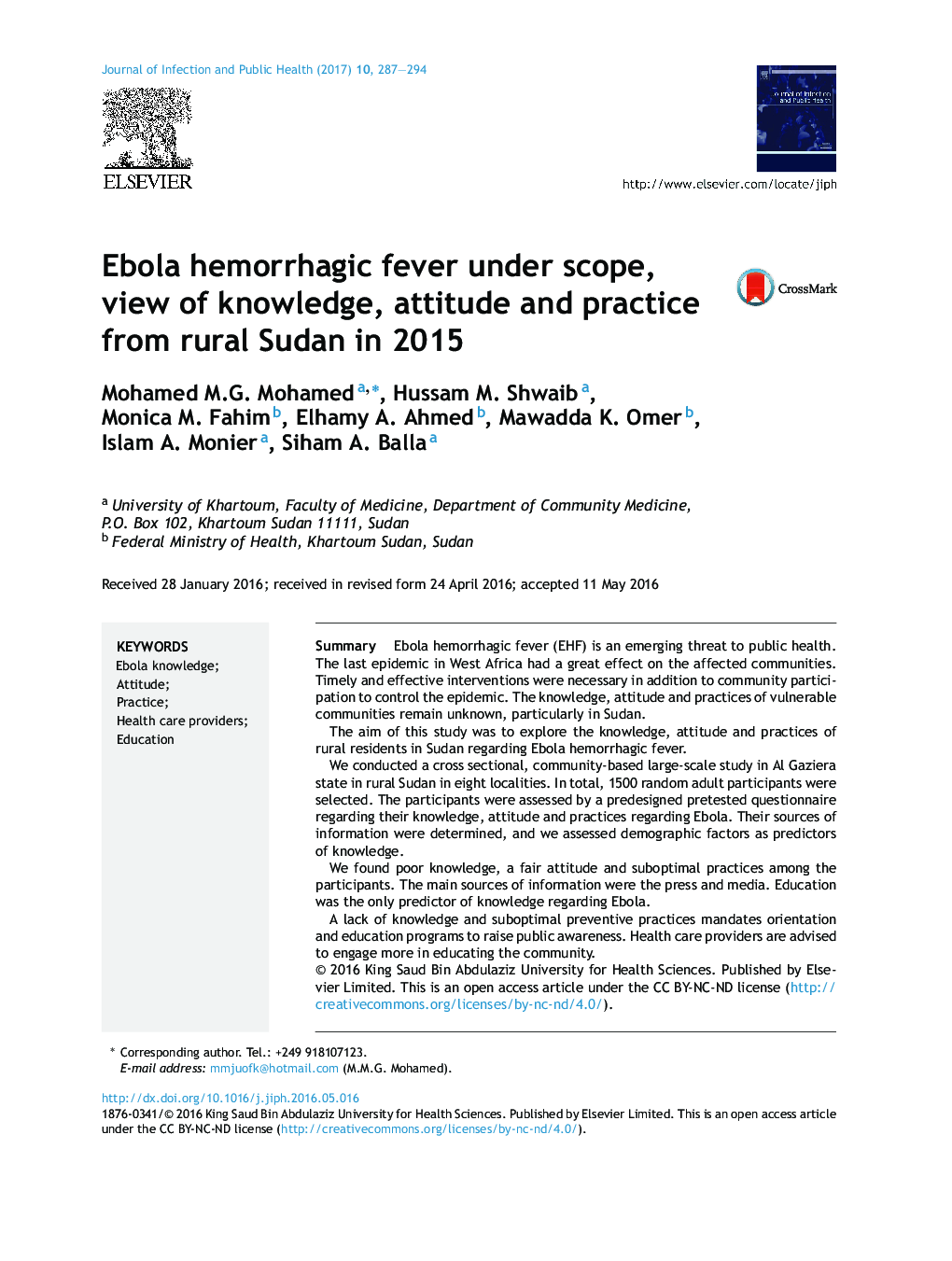| Article ID | Journal | Published Year | Pages | File Type |
|---|---|---|---|---|
| 5672795 | Journal of Infection and Public Health | 2017 | 8 Pages |
SummaryEbola hemorrhagic fever (EHF) is an emerging threat to public health. The last epidemic in West Africa had a great effect on the affected communities. Timely and effective interventions were necessary in addition to community participation to control the epidemic. The knowledge, attitude and practices of vulnerable communities remain unknown, particularly in Sudan.The aim of this study was to explore the knowledge, attitude and practices of rural residents in Sudan regarding Ebola hemorrhagic fever.We conducted a cross sectional, community-based large-scale study in Al Gaziera state in rural Sudan in eight localities. In total, 1500 random adult participants were selected. The participants were assessed by a predesigned pretested questionnaire regarding their knowledge, attitude and practices regarding Ebola. Their sources of information were determined, and we assessed demographic factors as predictors of knowledge.We found poor knowledge, a fair attitude and suboptimal practices among the participants. The main sources of information were the press and media. Education was the only predictor of knowledge regarding Ebola.A lack of knowledge and suboptimal preventive practices mandates orientation and education programs to raise public awareness. Health care providers are advised to engage more in educating the community.
